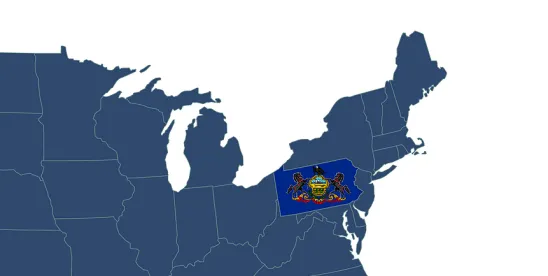As we previously reported, the U.S. Federal Trade Commission (FTC) issued a Final Rule which, on its anticipated effective date of September 4, 2024, will invalidate nearly all preexisting noncompetition agreements and bar employers from entering into such restrictions with workers in the future.
Since then, the Final Rule has been subject to legal challenges nationwide. Shortly before Independence Day, a Texas federal judge preliminarily enjoined the Final Rule on a limited basis, concluding that the plaintiffs in the case before the court were likely to succeed in showing that the FTC overstepped its authority when it issued the Final Rule. However, the judge in that case declined to enter a nationwide injunction and limited her order only to the specific plaintiffs in that case.
Following that decision, the odds seemed to favor that other challenges to the Final Rule would be decided similarly, with judges either enjoining the Final Rule outright or on a limited basis as the Texas judge did, but a Pennsylvania federal district court judge issued a surprising endorsement of the Final Rule when she denied a request to enjoin the Final Rule.
On July 10, 2024, the FTC argued to Judge Kelley Brisbon Hodge of the U.S. District Court for the Eastern District of Pennsylvania that the FTC’s mission is to prevent unfair methods of competition, and thus the Final Rule falls squarely within its rule-making authority. The Pennsylvania plaintiffs, not surprisingly, disagreed and asserted many of the arguments that the plaintiffs in the Texas action had successfully asserted. The Pennsylvania plaintiffs also emphasized the U.S. Supreme Court’s June 2024 landmark decision overruling what had come to be known as “Chevron deference” – the legal principle that agency interpretations and rulemaking are entitled to deference from the courts – insisting that the FTC overreached and tried to effectuate an end-run around legislative processes by adopting the Final Rule. (See our colleagues’ coverage of that decision here.)
On July 23, 2024, Judge Hodge issued her decision. In a sharp departure from her Texas judicial counterpart, Judge Hodge concluded that a preliminary injunction would be improper because the plaintiffs in the Pennsylvania case had not demonstrated that they would suffer any irreparable harm in the absence of such relief.
Going a step further, Judge Hodge also opined that the plaintiffs in the Pennsylvania proceeding are unlikely to succeed in their substantive challenge to the Final Rule. She concluded that the FTC Act expressly empowers the FTC “to make rules and regulations for the purpose of carrying out the provisions” of the statute, which include “prevent[ing]…unfair methods of competition.” Since the FTC Act grants the FTC the authority to “prevent” unfair competition, Judge Hodge reasoned that this delegation must necessarily include the authority to make prospective rules intended to effectuate that purpose and not only to redress harms that already have occurred. Finally, the court examined earlier decisions in which courts confirmed the FTC’s rulemaking authority and Congressional actions—specifically, amendments to the FTC Act—supporting that expanded authority, all of which bolstered her conclusion that the FTC did not overstep in enacting the Final Rule, even inasmuch as it may upend nearly all noncompetition covenants.
These inconsistent judicial determinations complicate matters for employers trying to determine their compliance obligations prior to the anticipated effective date. No judge has issued a nationwide injunction barring implementation of the Final Rule; only the plaintiffs before the court in the Texas proceeding have been granted a preliminary injunction. However, employers can reasonably anticipate that the Pennsylvania plaintiffs will appeal Judge Hodge’s decision, and the judge in the Texas proceeding indicated that she will issue a decision on the merits of the case—which may still include a nationwide injunction—on or before August 30, 2024, just days before the Final Rule’s September 4, 2024 effective date. We will continue to timely report on developments as the effective date draws near.





 />i
/>i
